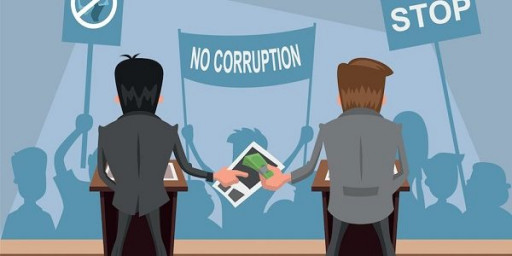The importance of written rules for political survival
Political parties are institutions that characterize modern democracy. They articulate and unite social interests, develop programs and connect society with the state. They recruit candidates for elections, elect political leaders and organize governments. They promote political participation of citizens. Moreover, they contribute to the context of the legitimacy of the democratic political system.
In this perspective, in addition to winning the elections, efficient management of power when they win, or making a constructive opposition, they owe their supporters, the people as well as international partners a clear and exhaustive explanation on the way the party works.
After the first pluralist elections, the new parliament with political consensus adopted in 1991 the law "On political parties", the first in the history of the Albanian state with this designation. The new law, based on the advanced European legislation of the time, filled all the legal gaps and created new concepts of organization, management and operation of political parties in a competitive democratic system. From the beginning, the law considers political parties as "voluntary associations of citizens on the basis of common ideas, convictions and political views, which aim to influence the life of the country through participation in elections and representation of the people in the elected bodies of power. " Further, the law requires that the creation of political parties is based on the evaluation of the program, statute or regulation of the party (Article 8), which also specifies the name, center, goals, tasks, sources of financing, as well as "the leading bodies and construction of the party ” (Article 9, point c). So, in July 1991, the concept of building the party and its organizational functioning was included in the law for the first time. From this moment on, the organization and internal functioning of political forces was considered a process that belongs to the entire country and its citizens, and not just to parties. With reference to internal democracy and democratic organization, the new law is specific in Article 6, which defines the cases of banning the creation of a political party or its activity. Specifically, it is considered a case of prohibition, among others, even "when its internal organization is in conflict with democratic principles such as: the construction of the party from the bottom up, the internal democratic elections for the party forums, the right to express the opinion for any member, freedom of entry and exit from the party, declaration and permission to control the use of resources and financial means".
Due to the very strategic importance of financial resources and the "obligations" they cause, transparency on them is a necessary and necessary condition that determines the democratic character of a political formation.
An indicator of a party's internal democracy is the legal basis foreseen for the exercise of democratic principles: documented and official democracy, the rules written in the statutes of political parties, supplemented by their regulations and instructions. These documents help us to better understand the philosophy underpinning the rights and responsibilities of members, who makes decisions in the party and how citizens can be represented, the chances of competition and the level of competition of ideas, what are the guarantees for different thinking, how and dispute resolution mechanisms. Internal functioning documents have the value of the constitution for the party, so defects in expression or ignorance in implementation constitute a good basis for doubting the ability of the political party to create a legal and efficient model in the governance of the country.
In terms of long-term political survival, there are some potential indicators that will tend to impose new operating rules on the political parties themselves and, consequently, on the models of intra-party democracy. A conditioning parameter of future policies will be the change of generations, which is expected to bring changes in the perceptions and expectations of citizens towards parties, politics, elections and political offers. The more the generations change and the standards increase, the more the democratic culture in the country is strengthened and the logic of institutional life and the rule of law dominates, the less room for survival there will be for political parties with internal organization not -optimal to even undemocratic. Parties will be forced to change, reform, revise political behavior and create a new contract of trust and principles between their members, and then between themselves and the potential electorate.
Another important indicator is the public perception of the two categories that political parties lack most today, intellectuals and youth, - which practically in a public society are defining groups for the quality of politics and its efficiency.
Another sensitive indicator is the relatively low number of women engaged in political parties. Only a third of the members in the field are women, which is presented in some way and in the presence of women in leadership positions.
Because this process takes place while the country will continue to have the main political priority of reaching the standards for membership in the European Union, the new electoral, citizen and female influx will have greater expectations towards political parties.
The influence of the European parties on the Albanian member parties, the globalization process and the expansion of communication through new modern forms, are expected to have direct positive consequences in the pressure on the Albanian sister parties for change and their internal and external reformation.
The interaction of a complex and comprehensive dialogue and partnership system with parties and institutions of Western countries will also have a positive impact, towards improving the standards of functional democracy within the country. These external factors are expected to influence the internal reflections on how the parties will continue to function.
It is true that today the parties have generally ignored their statutory rules and within them there are few critical voices that give importance to them, but the trend towards increased responsibility, public standards and accountability by political leaders is expected to continue to grow in the future. With the increase of party capacities as well as transparency within the parties, the chances of creating and functioning of competitive institutions in the party will increase as a result, which are the raw material for increasing internal democratic competition.
The very opening of the internal political debate on the necessity of living the entire activity of the party on the statutory and programmatic principles constitutes a welcome contribution. Parties must demonstrate political will for change and reform towards the perfection of internal democracy mechanisms, be more open to the public and more transparent, creates spaces where every interested individual can verify the functioning norms and every member can to express his opinion freely. Parties should follow the same standards for the same issues and for all levels of voting, as well as be oriented more and more towards the principle of voting and decision-making by the membership.
Effective and permanent mechanisms of democratic education within the parties, trainings, courses, schools, publications, academies and other instruments, will enable the access and dissemination of the best standards of democratic education to members, as well as the cultural and political elevation of theirs members. Only members who are aware of the values of democracy, of the political alternative, of the clear vision and the challenges of the perspective, can constitute great potentials for the democratization of the parties themselves and then, also of the social part engaged in elections as candidates, observers or voter. Partner organizations should also be part of this formative process.





_thumb.jpg)

